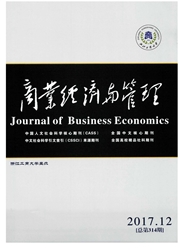

 中文摘要:
中文摘要:
文章以显性契约与隐性契约为主线,构建了家族企业契约治理三环模型,建立了家族企业契约治理方格理论,得到9种契约治理模式,并对其中5种常见模式的特征和优缺点进行分析;然后从代理理论与管家理论视角探讨家族企业契约治理模式选择问题。研究表明:代理理论指出管理者为"经济人",强调显性契约治理;管家理论指出管理者为"社会人",强调隐性契约治理;事实上代理理论与管家理论是完全可以融合的,管理者是"复杂人",同时具有代理和管家两种行为,因此不仅注重显性契约治理,也要注重隐性契约治理;短期而言,家族企业可以根据不同发展阶段而采取相应的治理模式,但长远来说,强隐性契约治理、强显性契约治理,即"强强模式"是中国家族企业的管理模式。
 英文摘要:
英文摘要:
This paper forms a three-loop model of contractual governance of family business based on the mainline of explicit contract and inexplicit contract.It forms contract governance grid theory of family business,which includes nine modes of contract governance.We analyze the characteristics,merits and demerits of five common modes and discuss the choosing of contract governance mode of family business in terms of Agent Theory and Stewardship Theory.Research shows that Agent Theory views people as economic person and emphasize visible contract governance while at the same time the Stewardship Theory views the director as a social person with emphasis on the invisible contract governance,but in fact the two theories can be well combined.The director is a complex person with both actions of agent and steward paying attention to invisible contract governance as well as the visible one.Family business can take corresponding managing mode in line with their different stages of development,but in the long run family business in our country take either the intensive visible or invisible contract governance at the same time,so-called the "win-win mode".
 同期刊论文项目
同期刊论文项目
 同项目期刊论文
同项目期刊论文
 期刊信息
期刊信息
